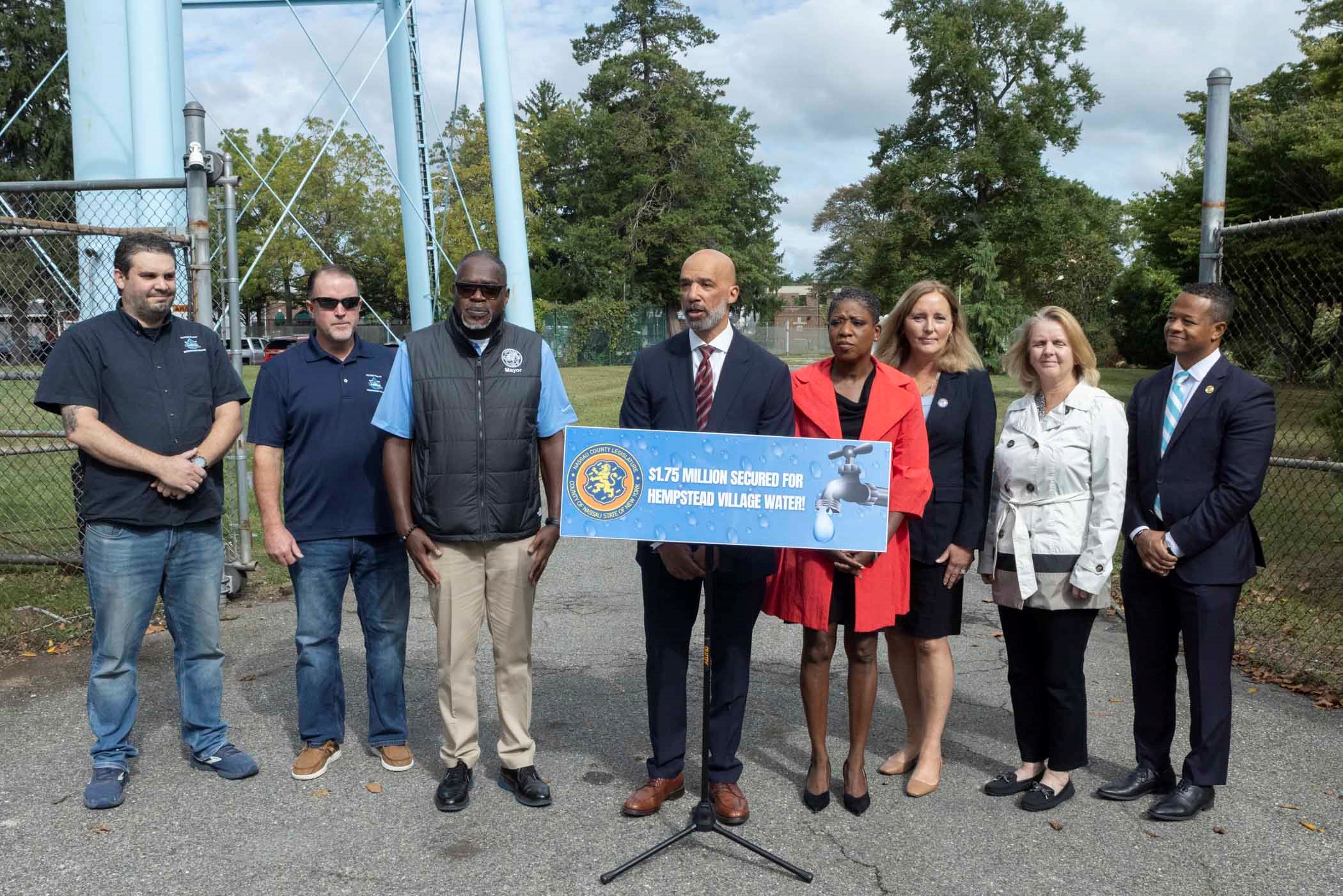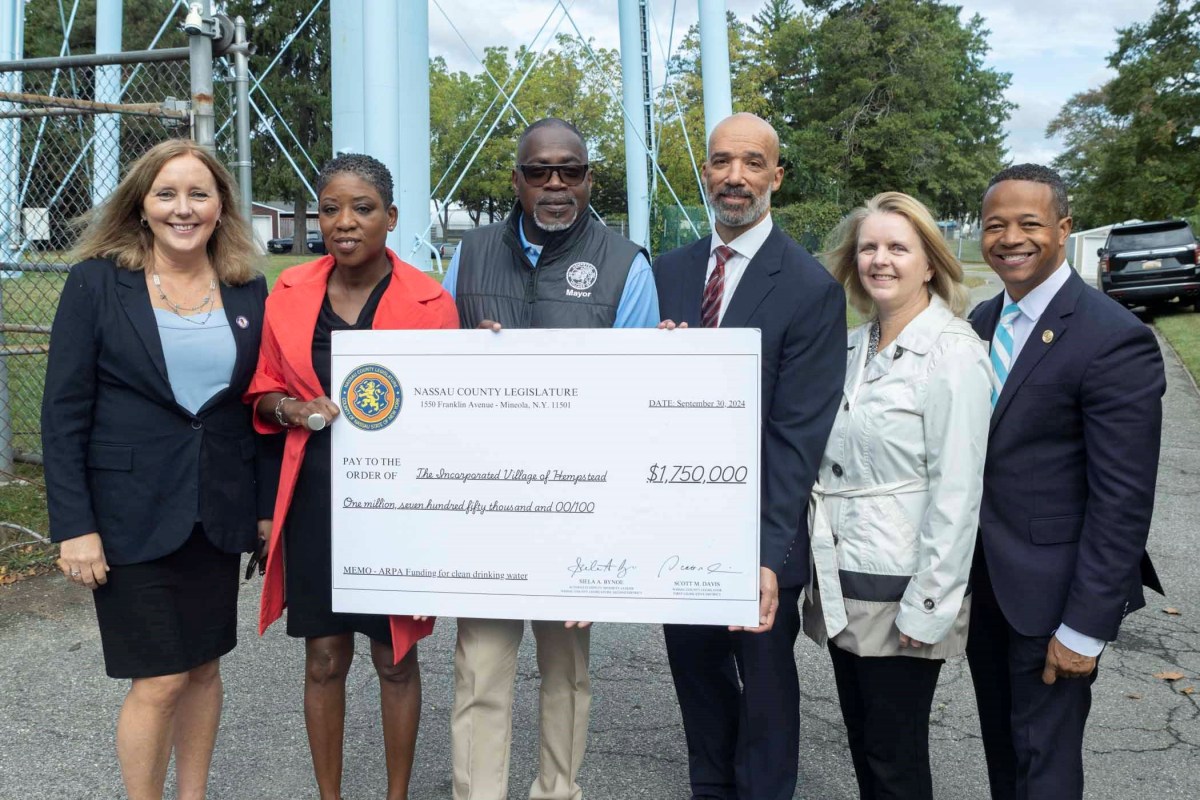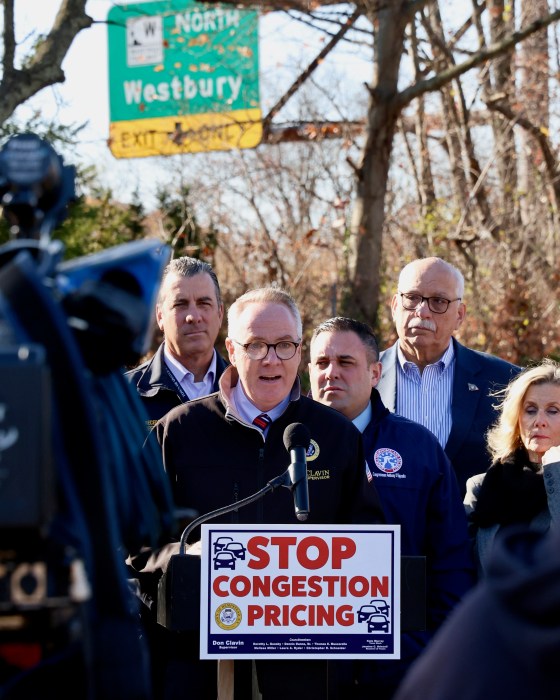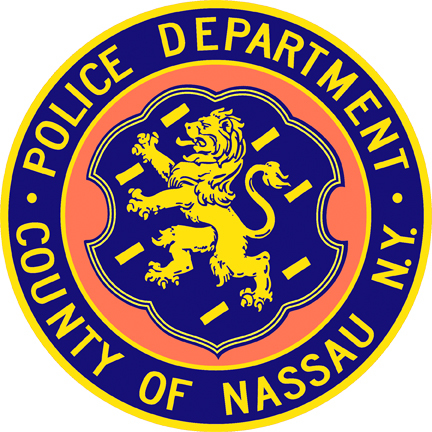Hempstead Village’s drinking water contains “unacceptable” levels of 1,4 dioxane, a likely carcinogen. Now they’re getting $1.75 million to do something about it.
“Hempstead Village is the largest village in the United States, and we contribute to the tax base of Nassau County,” said Hempstead Village Mayor Waylyn Hobbs, Jr. “These funds are going to help us break ground and get the job going.
The full Nassau County Legislature voted last week to allocate $1.75 million to Hempstead Village. The money will help the village create a new treatment plant to get rid of the high levels of 1,4 dioxane — a “forever chemical” and probable carinogen — in their water.
What’s The Plan To Treat Hempstead’s Drinking Water?
Hempstead Village has nine wells. Every single one was found to contain “unacceptable” levels of 1,4 dioxane earlier this year.
The Maximum Contaminent Level (MCL) set by the state for 1,4 dioxane is “well below” levels known to cause health effects in animals or humans. Though the levels found in Hempstead Village’s drinking water were, in some cases, 9 times that maximum level, officials maintain that the water is still safe to drink and bathe in.
In May, Hempstead Village authorized a $55 million bond to fund the new water treatment project, with hopes of securing state and federal grants to alleviate any additional burden on taxpayers.
The $1.75 million approved by Nassau County last week will help offset the cost of the new water treatment plant, and provide seed money for the beginning of the project. The funds are being drawn from $15 million set aside for not-for-profits and special districts that provide ARPA-approved services.
Up until recently, Hempstead Village was relying on its 100-year-old water treatment plant. The first stage of the project is demolishing the existing water meter shop to make way for the new treatment facility, which is the only way to get rid of 1,4 dioxane.

What Is 1,4 Dioxane?
1,4 dioxane — commonly found in laundry detergents — is often deemed a “forever chemical,” meaning it doesn’t easily break down. In other words, once it enters a water supply, if not treated, it will most likely be there for a very, very long time. The only way to get rid of it is with a cutting-edge treatment plan, which the ARPA money will help fund for Hempstead Village.
The chemical is harmful to humans. Studies by the Center for Disease Control found that, at low levels, 1,4 dioxane causes eye and nose irritation. At high levels, or across long periods of time, the chemical may cause severe liver or kidney damage, and possibly death.
The contaminant has been directly linked to liver cancer in animals. The Environmental Protection Agency established that 1,4 dioxane is a “probable human carcinogen.”
Where Did The 1,4 Dioxane Come From?
Long Island’s fight against 1,4 dioxane in its drinking water is nothing new.
In 2019, around 25 water suppliers across Long Island joined together to sue big manufacturers for “knowingly and willfully” using and selling products with this forever chemical that would “inevitably reach groundwater,” the suits said. Some of the plaintiffs have since reached settlements.
Long Island’s groundwater directly feeds aquifers, which are the island’s only source of drinking water.
A 2022 Water Quality Report by the Town of Hempstead found the concentration of 1,4 dioxane was, on average, between 7 and 10 times that maximum level allowed by the state.
The Clean Water, Clean Air and Green Jobs Environmental Bond Act gave $479 million to water districts across the state, many of them on Long Island. Hempstead Village was allocated a little under $6 million.
The additional funding secured last week, in a campaign spearheaded by Nassau County Legislature Alternate Deputy Minority Leader Siela Bynoe (D-Westbury) and Nassau County Legislator Scott Davis (D-Rockville Centre), was secured after the Democratic minority in the county legislature agreed to withhold its votes for bond authorizations proposed by Nassau County Executive Bruce Blakeman unless his administration agreed to release the $1.75 million to Hempstead Village for its clean water.
“It doesn’t get more basic than clean water, and this will go a long way toward helping that,” Davis said. “It also stands for the idea that we can help defray the expenses that would be borne on the residents of the village in a village that is marginalized and could really use that help.”



























